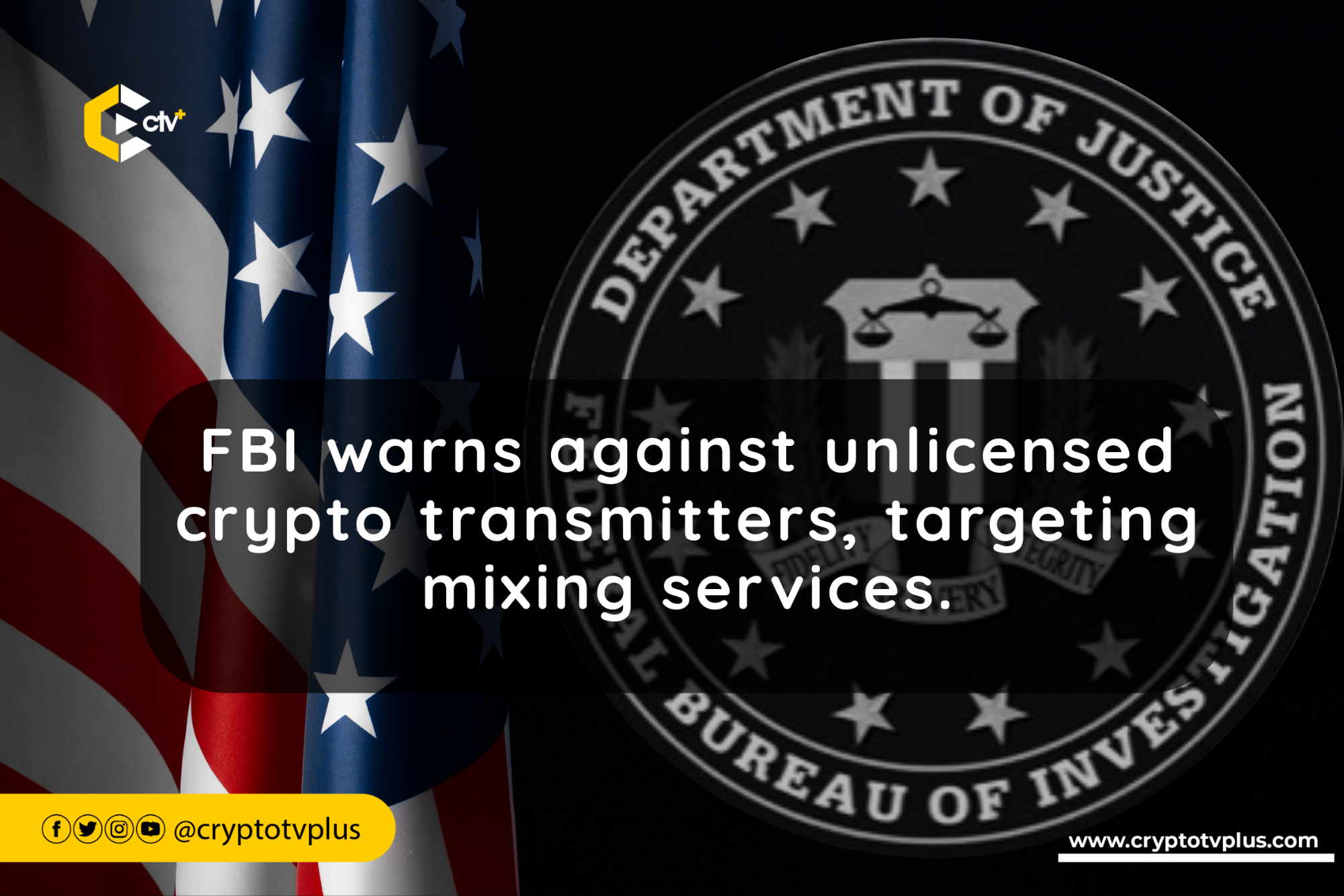News
FBI warns against unlicensed crypto transmitters, targeting mixing services

Michael Bacina, a partner at Piper Alderman, pointed out that the FBI‘s recent warning to Americans about using unlicensed money-transmitting services failed to recognize the nuances of how crypto services work.
A crypto lawyer suggested that the Federal Bureau of Investigation’s recent caution to Americans against unregistered cryptocurrency money-transmitting services might target smart-contract-based privacy tools.
On April 25, the FBI issued a public service announcement urging Americans to use only licensed Cryptocurrency Money Services Businesses that comply with current Know Your Customer (KYC) and Anti-Money Laundering (AML) regulations.
The FBI’s announcement indicated that it had recently carried out law enforcement operations against cryptocurrency services that weren’t properly licensed under federal law.
It warned that users of unlicensed services might “encounter financial disruptions” during these operations, especially if their funds were intermingled with proceeds from illegal activities.
Michael Bacina, Digital Asset Partner at Piper Alderman, told Cointelegraph that while the FBI’s announcement seemed aimed at warning against crypto mixing services, the “broad” scope of the warning missed much of the finer details.
“While this appears an attempt to warn consumers away from smart-contract driven privacy tools like Samouri or Tornado Cash, it’s a very broad warning which misses a great deal of nuance in how decentralized systems operate.”
“The sooner fit-for-purpose regulation and clear guidance for cryptocurrency replaces regulation by enforcement, the better the outcomes for consumers will be,” Bacina added.
In case you missed it, the FBI discovers stolen 1,580 BTC by Lazarus Group, warn of looming harm
On April 25, authorities arrested the co-founders of Samourai Wallet, a Bitcoin wallet and cryptocurrency mixing service, on charges of money laundering.
Keonne Rodriguez, CEO of Samourai Wallet, and William Hill, its CTO, face charges of money laundering and operating an unlicensed money-transmitting business. If convicted, they could face a maximum prison sentence of up to 25 years.
Several other commentators on X noted that the ambiguous definition of what constitutes a Money Services Business (MSB) raised concerns about its implications for cryptocurrency service providers.
Ryan Sean Adams, co-founder of Bankless, described the FBI’s announcement as “eerie” and questioned which services might technically fall under the MSB category in an April 25 post on X.
“Oh and is your code or wallet a MSB? maybe, not — but we’re arresting privacy devs right now & calling them MSBs so…”
These events occur amid escalating legal tensions between cryptocurrency companies and regulatory agencies in the United States.
On April 25, Ethereum development firm ConsenSys sued the Securities and Exchange Commission, alleging that the regulator sought to “seize control over the future of cryptocurrency” through enforcement actions aimed at classifying Ether as a security.

























1 Comment